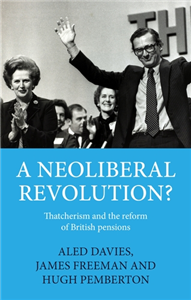The economics of disability
Insights from Irish research
by Rob Kitchin, John Cullinan, Seán Lyons, Brian Nolan
This book brings together research relating to the economics of disability in Ireland. It addresses a range of issues of relevance to the economic circumstances of people with disabilities, considering topics such as social inclusion, poverty, the labour market, living standards and public policy. It also considers issues of specific relevance to children, working-age adults and older people with disabilities, providing important evidence that can help improve disability policies, services and supports. Each chapter presents a clear and relatively non-technical treatment of the specific topic under consideration, making it accessible to a greater number of interested readers. In doing so, it provides an important addition to our knowledge and understanding of the economics of disability and will serve as a useful and up-to-date resource for a range of interested parties both in Ireland and internationally. ;












